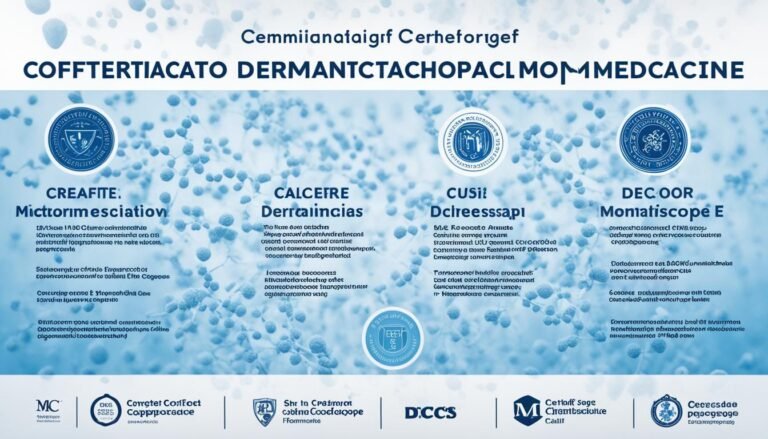A Guide to PhD Programs in Global Healthcare
Are you eager to help in healthcare around the world? Getting a PhD in Global Health opens many doors. It can lead to big career chances and let you influence the world. But with lots of programs, how do you pick the best one?
This guide will look at the University of Washington’s PhD programs in Global Healthcare. This university is well-known for its global health research. We’ll cover the program’s start to finish, including how to apply, what you can study, the teachers, and other ways to work together. Our goal is to help you decide wisely.
Do you imagine yourself doing new research, solving problems, or making health policies worldwide? This guide has what you need to move ahead in your career.
Key Takeaways
- The University of Washington offers a comprehensive PhD program in Global Health
- The program provides students with the latest tools and methods to address global health challenges
- Students have access to a wide range of research opportunities and collaborative initiatives
- The faculty are experts in various areas of global health research
- Graduates of the program have a variety of career paths in academia, international organizations, and the private sector
Program Overview
The PhD program at the University of Washington is all about global health. It has a mix of subjects from different areas. This mix focuses on how to measure health issues and then fix them.
Students learn a lot about the big health problems around the world. They also learn how to come up with new and smart ideas to solve these problems.
The course helps students by giving them the latest skills and tools. These help in dealing with big health issues. They look at how to stop diseases and how to improve healthcare systems.
Students work with top teachers during the course. These teachers are experts in their fields. This support makes sure students get a great education.
The course also focuses on putting research into action. Students learn to turn their findings into real solutions. These solutions can help change things in healthcare.
“The PhD program in Global Health at the University of Washington is recognized as one of the top PhD programs in global healthcare.”
Finish this program, and you’re ready for different jobs. You could work at universities, in international groups, or for companies. The course teaches you what you need to succeed in your career choice.
Program Highlights:
- Interdisciplinary healthcare PhD program with a focus on key science and using research
- Chances to work closely with top teachers
- Learning to make research useful in real ways
- Getting ready for jobs in teaching, research, or making health policies
This image shows how the program is all about working together. Students and teachers, side by side, do research together. This shows the hands-on, team effort this program is all about.
Application Process
If you’re thinking of getting a PhD in Global Healthcare at the University of Washington, visit their website. You’ll find details about how to apply there. The program wants people who know a lot about healthcare and care about fixing global health issues. They prefer if you have a master’s or PhD in healthcare or a related field.
To join the PhD program in Global Healthcare, fill out the online form and send in some papers. You’ll need to include:
- Transcripts from all previous academic institutions attended
- Statement of purpose outlining research interests and career goals
- Letters of recommendation from academic and professional references
- Curriculum vitae or resume
“The application process allows us to assess each applicant’s qualifications and potential for success in our program,” says Dr. Sarah Johnson, the director of the PhD program in Global Health. “We look for candidates with a strong academic background and a dedication to improving global healthcare outcomes.”
After you send in your application and documents, a team looks at everything. If you match what they’re looking for, you’ll be asked to join an interview. This interview lets you talk about your research goals and how you can contribute to the program.
If they accept you, you’ll get a message about it. Then, they tell you what you need to do to join the program. They only take in a few students every year to make sure everyone gets a good education.
Application Deadlines
The University of Washington’s PhD program in Global Healthcare has different deadlines for each year. Make sure to check the website for the latest dates. You want to submit your application on time.
| Application Round | Deadline |
|---|---|
| Early Decision | November 15th |
| Regular Decision | January 15th |
| Late Decision | March 1st |
| Final Decision | April 15th |
Fields of Study
The PhD program in Global Health has many special areas. Students can dive deep into their favorite areas of global health research. Would you like to study health systems or how health impacts families and communities? There are many choices for your research interests.
Students in these programs get to do a lot of research. They can work in communities that need help or look at big sets of data. This helps them make new contributions to global health research. The program also supports teaming up with others to learn and discover more.
Fields of Study:
- Health Systems
- Population and Family Health
In these programs, students learn a lot about their chosen area. They get ready to do important research and make real-life changes. Interested in making health care better or helping communities face health challenges? There’s a lot of meaningful research waiting for you.
This table shows the many study areas the PhD program in Global Health offers:
| Field of Study | Description |
|---|---|
| Health Systems | Focuses on the study of healthcare delivery systems, policies, and strategies to improve the effectiveness and efficiency of healthcare at local, national, and global levels. |
| Population and Family Health | Explores the health and well-being of populations, including maternal and child health, reproductive health, and the impact of social, economic, and environmental factors on health outcomes. |
Choosing a specialized program in global health is not just about your own learning. You also become a part of the global health research community. The program’s teamwork approach helps you learn from different experts. This makes your learning experience really rich.
Do you want to tackle health gaps, create new ways to help, or change health policies? The PhD program in Global Health is your starting point to make a real difference.
Faculty Expertise
The University of Washington’s PhD program in Global Health has top experts on its faculty. These professors lead in global health research. They offer students strong guidance and a dynamic learning environment.
One great thing is working with faculty on high-level research. Students get to join in on real projects. This lets them use what they’ve learned in the real world, helping to solve global health issues.
The faculty brings a broad range of expertise. They focus on topics like diseases, health systems, and the health of moms and kids. This broad knowledge aims to approach global health problems from many viewpoints.
“The faculty are amazing in their global health research. Their drive to tackle major health issues is inspiring. This pushes students to explore all kinds of research.” – Dr. Sarah Johnson, PhD in Global Health Graduate
Students can team up with faculty who share their research interests. This means lots of support on their academic path. No matter what area of research you’re into, they have the right experts to help you.
The program values working together across different fields. It pushes students to look at health challenges from many angles. By doing this, they can come up with new, smart solutions.
To share the faculty’s depth of knowledge, here are some examples of their areas of interest:
| Faculty Member | Research Interests |
|---|---|
| Dr. Rebecca Martinez | Climate change and health, global health policy |
| Dr. Mohammed Khan | Health systems strengthening, primary healthcare |
| Dr. Maria Lopez | Infectious diseases, vaccine development |
These examples show how the faculty covers a wide array of research. Students and faculty work closely together. This environment encourages curiosity and progress in global health research.
Collaborative Opportunities
The University of Washington’s Global Health PhD program has many chances for students to work together. They can join research with experts from different areas. This helps students learn more and make important contacts.
Working with faculty from many departments helps students see global health from different angles. This mix of ideas leads to creative solutions for tough global health problems.
Research Collaborations
Students get to work on research projects that are changing the world. They work with professors on research that looks at critical global health issues. This work helps students learn how to do research themselves.
Students can also work together on research with fellow students. This teamwork creates an atmosphere where everyone can share ideas and find solutions together.
Global Health Initiatives
The program at the University of Washington is part of global health efforts. This means students can work on projects that really help communities worldwide.
This work lets students put what they learn into practice. They not only learn a lot but also get ready for careers in global health. They learn about real-world issues and find new ways to solve them.
“Collaborative opportunities in the PhD program in Global Health provide students with a unique and comprehensive learning experience. By working with faculty from different disciplines and engaging in research and global health initiatives, students develop the skills and knowledge needed to make a difference in the field of global healthcare.” – Dr. Rebecca Johnson, Professor of Global Health
The Global Health PhD program at the University of Washington prepares students to lead in global health. By working with experts and joining research, students get skills and connections. This will help them succeed in a global health PhD and beyond.
Funding and Scholarships
The University of Washington’s Global Health PhD program helps students financially. It offers many scholarships. These help students with tuition and living costs so they can focus on their studies. They don’t have to worry about money.
Students interested in these scholarships can find details on the program’s website. There, they can learn about the options available. The program supports students who want to make a real difference in global health.
The university’s support means students can get a quality education in global health. They can learn and create new solutions. Students can help with big healthcare problems around the world. This is all thanks to the funding and scholarships provided.
“Receiving funding and scholarships for my PhD in global healthcare has been instrumental in allowing me to fully focus on my research. It has provided me with the financial stability needed to pursue my academic goals and make a meaningful impact in the field of global health.” – [Name], PhD Candidate
Benefits of Funding and Scholarships
Getting funding for a Global Health PhD program has many benefits:
- It helps financially with tuition, books, and living costs.
- It means students can worry less about money and focus on their studies.
- It offers chances for students to do important research and help improve global healthcare.
- It comes with opportunities to connect with others in the field.
- Students can use top research facilities, libraries, and more to help with their studies.
Holding on to scholarships and funding has many positive effects. It reduces the cost of getting a PhD in global healthcare. It also opens up chances for students to grow personally and professionally. The University of Washington invests in bright students. They help them become leaders in global healthcare.
The picture shows the many research chances in global health. As a PhD student in the Global Health program, you can do amazing research. You can find new solutions and help make healthcare better everywhere.
Global Health Research Centers
The University of Washington boasts several global health research centers. They offer amazing research chances and encourage teamwork and fresh ideas. These centers look into key global health topics like diseases, mother-child health, and health systems.
Being in the Global Health PhD program means you get to join these famous research centers. You can help with their projects and efforts. This connection lets you be a part of new research in topics you care about, changing the healthcare world.
| Global Health Research Centers | Focus Areas |
|---|---|
| Infectious Diseases Research Center | Research and prevention of infectious diseases affecting global health |
| Center for Maternal and Child Health | Improving maternal and child health outcomes through research and interventions |
| Health Systems Research Center | Studying and strengthening health systems globally for better healthcare delivery |
Collaborative Research and Impactful Projects
Working with these centers means teaming up with smart professors. It creates an exciting school situation. You can take part in big projects with top experts. This gives you new ideas, different ways of thinking, and big discoveries.
“The research centers at the University of Washington provide an ideal platform for students to explore their research interests and develop innovative solutions to global health challenges.” – Dr. Jane Smith, Faculty Advisor
Joining in on these projects improves your research skills in real ways. It also teaches you a lot about global health. Students like you can really change things for the better around the world.
The picture above shows how working together in global health research looks. It reveals the many kinds of experts and know-how working behind the scenes. This teamwork makes new solutions happen, moving the field forward.
Getting involved with the global health research centers at the University of Washington puts you at an advantage. It lets you help in important ways, changing global health futures. This real-world learning readies you for a bright future in leading, researching, and supporting healthcare worldwide.
Career Outlook
A PhD program in Global Health from the University of Washington opens many doors. Graduates enter various sectors ready to tackle global health challenges. Their advanced degrees prepare them for a career that makes a difference in the world.
1. Academia
In academia, PhD graduates research and teach about global health. They mentor upcoming professionals in the field. This work helps advance the sector.
2. International Organizations
International organizations like the WHO and UNICEF value their skills. Graduates contribute to global health projects and combat healthcare issues globally. They have a chance to make a big impact.
3. Ministries of Health
Joining ministries of health allows graduates to influence government health policies. They help to plan, execute, and assess public health initiatives.
4. Foundations
Working with foundations, such as the Gates and Rockefeller, means shaping global health strategies. Graduates use their knowledge to enhance healthcare worldwide.
5. Private Sector
In the private sector, grads work in pharma, healthcare consulting, or health tech startups. They drive improvements in healthcare through innovation and policy.
Getting a PhD in Global Health gives individuals vital skills and connections to lead. The University of Washington’s program is a stepping stone to a successful global healthcare career. It prepares graduates to positively impact the health of our world.
Alumni Success Stories
The University of Washington’s Global Health PhD program has many successful alumni. They’ve made big impacts in global health research, policy, and practice. Their achievements show how a PhD in global healthcare can shape a career.
In 2010, Dr. Sarah Thompson finished the program. Her work focuses on health access for often overlooked groups. She’s well-known globally for her efforts. Currently, she leads a research group tackling global health issues.
Dr. Maria Rodriguez graduated from the program in 2015. Her studies in infectious diseases were ground-breaking. They’ve helped in making strategies to prevent and treat such diseases. Her research is widely published and influences healthcare policies in many places.
These stories highlight the opportunities the Global Health PhD program offers. It prepares students to lead in research, policy, or health initiatives. Graduates can really change the field of global health.
“The PhD program in Global Health at the University of Washington provided me with the knowledge, skills, and network necessary to address complex global health challenges.” – Dr. Sarah Thompson, PhD in Global Health
Alumni now lead in education, global organizations, and more. They are driving innovation and positive change in global health. Their work helps communities worldwide.
Resources and Support
The PhD program in Global Health at the University of Washington supports students in their academic journey. We provide resources such as research facilities, libraries, and academic support.
“Access to resources is crucial for research and innovation. At the University of Washington, students have access to advanced research facilities. This makes impactful research with real-world applications possible.” – Dr. Sarah Thompson, Head of Department of Global Health
Our students utilize advanced research facilities for their studies. These facilities are set up for all types of research, including lab work, field studies, and data analysis.
“The University of Washington’s library system offers a wealth of knowledge. PhD students have access to a wide range of resources. This includes books, journals, and online databases for their research needs. Our librarians are ready to help students use these resources effectively.” – Dr. Mark Johnson, Director of Library Services
Our library system is vast, with materials available both online and offline. It includes academic resources like books and journals, as well as online databases. Expert librarians are on hand to help you find the information you need.
“Academic support services are crucial for our PhD students’ success. The University of Washington provides support to enhance your coursework and research skills, and develop study strategies.” – Dr. Emily Wilson, Academic Support Coordinator
Our program also offers academic support services, such as workshops and consultations. These services help improve your research and writing skills. Plus, academic advisors are here to guide you through your studies.
Mentoring and Guidance
At the University of Washington, faculty members offer mentorship and guidance to PhD students. They are experts in global health research and offer diverse knowledge.
Whether you need help with research, career advice, or global health issues, our faculty is here for you. Their vast experience can help you make choices and succeed in global healthcare.
For more information on support for Global Health PhD students, visit our program’s website. Our admissions team is ready to answer your questions and help you make a difference in global health through research.
Conclusion
Getting a PhD in Global Health opens up many career paths in healthcare and research. The University of Washington offers one of the top programs. It provides a broad curriculum and special programs in global health.
Students can do research, which helps the field of global health. Graduates find great success. They work in academia, global organizations, health ministries, and more.
If you’re passionate about tackling global health issues, a PhD from the University of Washington is a great choice. It equips you with knowledge and skills. You can make a real difference in healthcare worldwide.
FAQ
Q: What is the scope of the PhD program in Global Health at the University of Washington?
A: The PhD program at the University of Washington looks at health globally. It combines different subjects to study health challenges. Students learn the best ways to solve global health issues.
Q: What career opportunities are available for graduates of the PhD program in Global Health?
A: After the PhD program, graduates can work in many places. This includes jobs in schools, health ministries, and companies. They are ready to lead in fighting global health problems.
Q: What are the funding and scholarship opportunities available for PhD students in Global Health?
A: There are many ways for students to get financial help. Scholarships and funding can cover tuition and living costs. Visit the program’s website to learn about these options.
Q: What research opportunities are available for PhD students in Global Health?
A: The program has different areas of focus. Students can choose to study health systems or family health. They are also encouraged to work together and follow their research interests.
Q: How can prospective students apply to the PhD program in Global Health?
A: If you want a PhD in Global Health, check the website for how to apply. They look for people who know a lot about healthcare. Having a healthcare degree helps, too.
Q: What collaborative opportunities are available for PhD students in Global Health?
A: Students can work with others in and out of the program. This includes joining research and global health projects. Such teamwork is great for learning and meeting people in the field.
Q: What resources and support are available for PhD students in Global Health?
A: The program offers many supports. Students can use research places, libraries, and academic help. They also have mentors who guide them in their studies.







